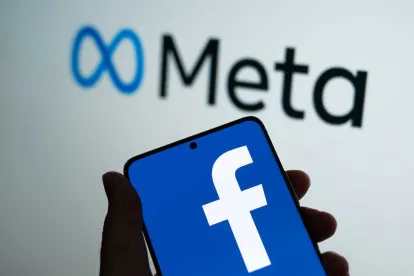The United Kingdom Competition and Markets Authority (CMA) has reissued its order for Meta Platforms Inc. (Meta) (owner of Facebook) to divest the GIF (Graphics Interchange Format) platform, Giphy Inc. (Giphy). The decision follows Meta’s appeal of the CMA’s 2020 divestment order and has led to the unwinding of the US$315 million takeover. Given that Giphy had zero sales in the United Kingdom, this case acts as a stark reminder to dealmakers of the CMA’s broad remit to review transactions and impose global remedies even in foreign-to-foreign deals, in particular where a target is an innovative start-up or holds innovative technology.
BACKGROUND
Meta originally acquired Giphy in May 2020 for approximately US$315 million. This was a small transaction for Meta, which intended to bring the GIF platform into the Meta portfolio which already includes WhatsApp, Instagram and Facebook. Since Giphy had no revenues in the United Kingdom, Meta decided to close the acquisition without voluntarily notifying it to the CMA for review.
However, the transaction was on the CMA’s radar. The CMA asserted jurisdiction based on a wide interpretation of its share of supply test1 and in June 2020, the CMA adopted an initial enforcement order (IEO) prohibiting Meta from further integrating Giphy pending the CMA’s review. However, Meta had largely already integrated Giphy into Meta.2
On 30 November 2021, after an 18-month investigation and a record-breaking GBP 50.5 million fine for breaching the IEO, the CMA prohibited the transaction and ordered Meta to divest Giphy.3
CMA’s Theories of Harm
Meta’s key arguments to defend the acquisition before the CMA were that Giphy was loss-making and struggling to finance its operations, and that Meta would invest to make Giphy a competitive force. The CMA rejected this and countered that the merger was anticompetitive primarily on the basis of two theories of harm:
-
The acquisition would cause a horizontal shift in the display advertising market in the United Kingdom. The CMA found Giphy’s advertising services had the potential to compete with those of Meta in the United Kingdom. The CMA explained that Giphy was already offering innovative advertising services in the United States and, prior to Meta’s acquisition, had been considering expanding to other countries, including the United Kingdom.
-
The acquisition would also create restrictive vertical effects in the supply of social media, as Meta would have the ability and incentive to foreclose its social media rivals from accessing Giphy’s services.
Meta’s Appeal and the CMA’s Reissued Order
Meta appealed the CMA’s 2021 divestment order to the UK’s competition court, the Competition Appeal Tribunal (CAT), on the ground that, amongst others, the CMA had effectively fabricated a potential market in which it found that Meta and Giphy competed (or would compete). Meta contended that the CMA cannot be allowed to postulate future markets without current market activity to rely upon, in order to halt a merger in the present.
However, the CAT largely agreed with the CMA, and only found against the CMA on one of Meta’s six grounds of appeal – a procedural ground relating to sharing third-party confidential information. In light of this, the CMA reconsidered its decision but reached the same outcome, which was released on 18 October 2022.4 The CMA’s reissued decision has ordered Meta to unwind the transaction - an outcome that Meta has accepted.5
CMA KEEPING AN EYE ON INNOVATIVE TECH
The decision confirms the CMA’s increased appetite for reviewing acquisitions of start-ups by “Big Tech.” This certainly contrasts with a previous lack of intervention by the regulator, for example in Meta’s acquisition of WhatsApp in 2014 for US$16 billion or its acquisition of Instagram in 2012 for US$1 billion. Both transactions were significantly larger than the value of the Giphy transaction but received more limited scrutiny and were cleared unconditionally.6
In practice, this decision introduces considerable uncertainty for merging parties in the technology space and adds to the CMA’s expansive interpretation of its jurisdiction post-Brexit. This has played out in other landmark cases such as the 2019 Sabre/Farelogix and the Roche/Spark acquisitions, where the CMA asserted jurisdiction despite the targets generating no UK turnover.
This development also mirrors the European Commission’s expanding jurisdictional reach, as reflected in the recent Illumina/Grail case discussed here. These cases highlight the strong policy focus of the European authorities on scrutinising deals which could impact competition for innovation in Europe in the future, however small the target today and irrespective of its current links with the United Kingdom or European Union.
IMPLICATIONS FOR DEALMAKERS
We outline below some key considerations for dealmakers in light of the Meta/Giphy case.
Consider carefully whether it is sensible to reach out to the CMA proactively, even where there is no obvious UK nexus
In appropriate cases, a full notification or a short briefing paper can help to manage risk exposure as well as mitigate timing impacts (taking into account that the CMA process can be long and arduous).
Consider conditionality and protections in the purchase agreement from the outset
If Meta had made the transaction conditional on regulatory approvals, it could have re-evaluated whether to continue at each stage of the CMA’s investigation. Instead it was left with the financial responsibility for a business it was prohibited from integrating throughout a two-year investigation and will ultimately have to sell.
Beware the risk of integrating without approvals
Meta is now having to take positive steps to reconstitute Giphy into a stand-alone company that can be sold to a third party purchaser, under the supervision of the CMA.
OTHER THINGS TO LOOK OUT FOR ON THE UK REGULATORY LANDSCAPE
Dealmakers are also reminded to consider whether the new UK National Security and Investment Act 2021 (NSI Act) (or equivalent foreign investment laws in other countries) might be triggered by their deal in an innovative space.
The NSI Act7 requires a mandatory notification to the UK government where the target is active in any one of a wide array of areas considered to be of national strategic importance, which include critical technologies such as certain artificial intelligence, cloud computing, quantum technology, computing hardware, and others. Only a limited nexus to the United Kingdom is required to trigger a notification (UK sales alone may trigger for example) and failure to obtain NSI approval carries major consequences, including the risk of unwinding and criminal penalties.8
The UK government has been keen to stress the United Kingdom remains open for foreign investment, indeed in the first Annual Report in June 2022 then Secretary of State for Business, Energy and Industrial Strategy, Kwasi Kwarteng, emphasised, “the UK is securing itself against constantly evolving risks whilst maintaining a free and open economy.”9
FOOTNOTES
1 The UK’s share of supply test requires parties to notify a transaction to the CMA where together they would supply at least 25% of a particular good or service in the United Kingdom. In practice, this provides the CMA with a very broad remit to review transactions since it can define the supply market as broadly or narrowly as it wishes for jurisdictional purposes.
2 See Competition and Markets Authority Final Report of 18 October 2022, at 11.19(a)
3 https://assets.publishing.service.gov.uk/media/635017428fa8f53463dcb9f2/Final_Report_Meta.GIPHY.pdf.
4 https://www.gov.uk/government/news/cma-orders-meta-to-sell-giphy
5 https://www.theverge.com/2022/10/18/23410487/meta-sell-off-giphy-following-uk-cma-competition-ruling
6 Although the Commission did fine Meta €110 million in 2017 for providing misleading information about the Whatsapp acquisition (https://ec.europa.eu/commission/presscorner/detail/pl/IP_17_1369).
7 To read more on that please see our latest alert here: https://www.klgates.com/The-UK-National-Security-Regime-Wets-Its-Feet-UK-Government-Publishes-New-Guidance-8-26-2022.
8 This can include a civil penalty of up to five percent of the organisation’s global turnover or £10 million, whichever is greater.








 />i
/>i
